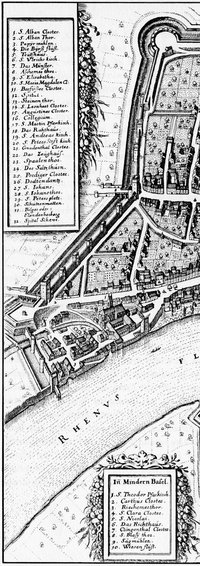Many roads leading to Basel: educational migration, immigration, and flight
Many roads have led to Basel over the centuries. Whether arriving as aristocrats in search of education and culture or finding themselves involuntarily stranded in Basel, foreigners have shaped the community and research at the university and in the city.
During the sixteenth century, the educational migrants who came to Basel – driven by social and confessional motives – included the sons of wealthy Polish families who either began or ended their “grand tour” in the city. These young men were followed in the eighteenth century by Hungarian students, who were recruited from the young generation of Hungarian Protestants eager and able to study at a university. Connections to the educational institutions of both countries continue to this day.
In contrast, the first female professor in Basel, Elsa Mahler, did not initially stay in Basel by choice, but was unable to leave after having arrived as a traveler and then deciding to forge a career in the city, albeit circuitously. Considered together with several professors from the nineteenth century and from the years 1933 to 1945, she stands as emblematic for a whole series of refugees and immigrants who had a lasting impact on the university.



